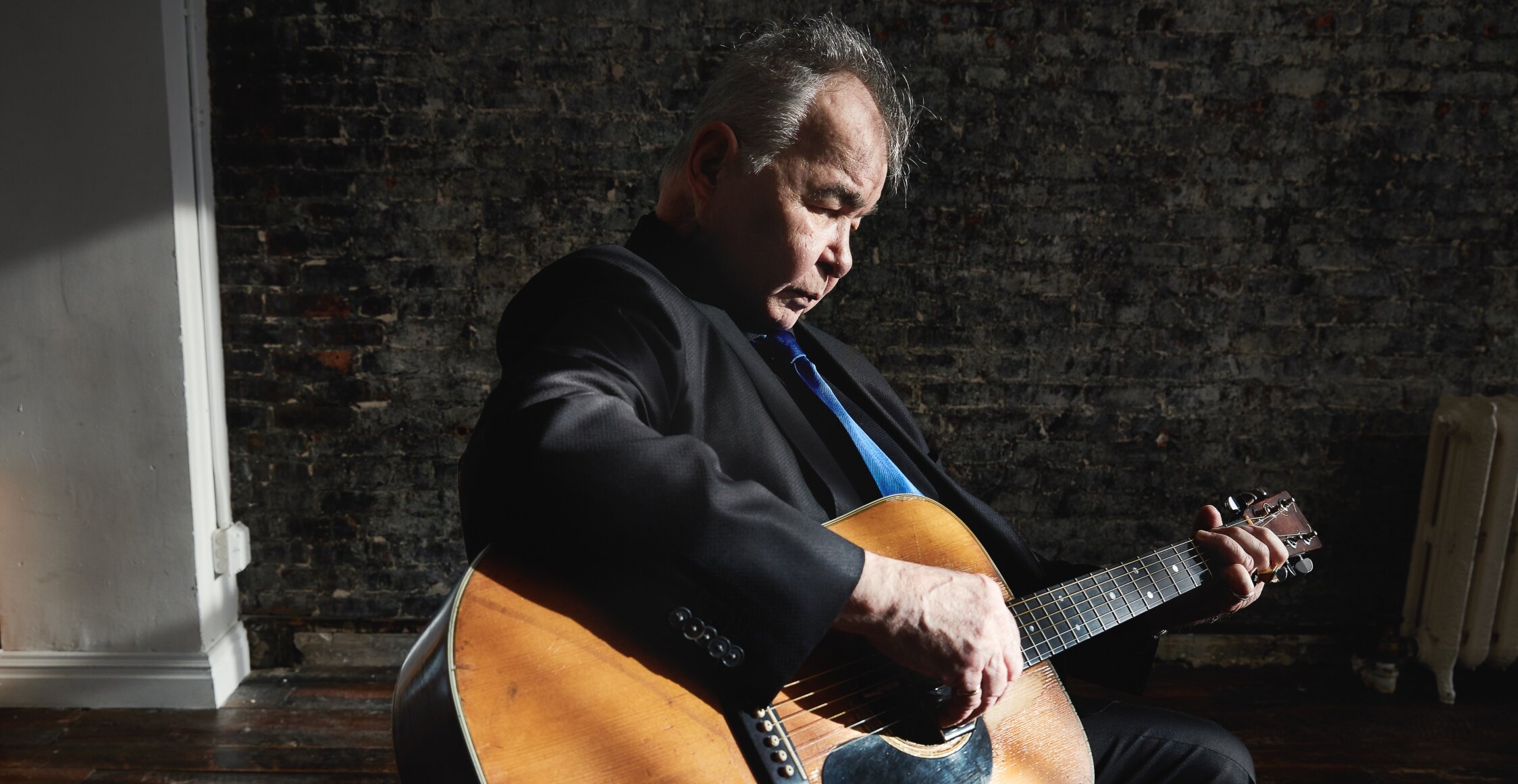Toward the end of Billy Bob Thornton’s hilarious and at times poignant 2001 film, Daddy and Them, the character of Alvin Montgomery, played by John Prine, visits each family member at bedtime as a sort of sage. He explains their problems without judgement, but offers homespun solutions through love and empathy, with a folksy delivery and just the hint of a sly wink. He leaves each person feeling a sense of warmth, relief, and slight embarrassment that they had been too caught up in themselves to see the forest for the trees, and maybe a little confused.
Such is the effect of John Prine’s songs on all of us. There is nary a shred of cynicism to be found. Instead, Prine’s lyrics are filled with wonder, bemusement, and a rare form of hardened innocence formed by experience, without letting the bad experiences spoil his outlook.
Born in Maywood, Illinois on October 10, 1946 to parents who had migrated from Paradise, Kentucky, Prine did a stint in the Army before becoming a mail carrier in Westchester. Although he started writing songs and playing guitar (taught to him by his older brother Dave) around the age of 14, it was during those mail routes when he would think up the bulk of the songs that would comprise one of the great debut albums of the 1970s and beyond. But before that, he had to be discovered.
And discovered he was, by one of America’s most famous film critics who caught his act by chance one night at an out-of-the-way Chicago bar called The Fifth Peg. Roger Ebert then went back to the Sun-Times, and wrote up Prine’s first review, published a day before the songwriter turned twenty-four. By that time, he’d written jaw-dropping, wise-beyond-his-years-and-logic songs like “Sam Stone” (“there’s a hole in daddy’s arm where all the money goes”), “Hello, In There,” and “Angel From Montgomery.” All would end up on his debut, along with “Donald and Lydia,” the still timely “Your Flag Decal Won’t Get You Into Heaven Anymore,” and, of course, “Paradise.”
Before all that, though, no less than Kris Kristofferson also saw Prine before most anyone, thanks to Prine’s songwriting friend, Steve Goodman.
“Steve Goodman brought me over to this Club in Chicago, the Earl of Old Town,” Kristofferson told Ebert in 1975. “I had heard Stevie, who was great, and now Stevie insisted we get there about the crack of dawn and here's Prine sleeping on the goddamn floor.
“They kick Prine awake and he stumbles to the mic to perform for the so-called stars, and I'm drowning my embarrassment in bourbon, and about halfway through the first song something catches my attention.” Kris would recount that scene in the liner notes to Prine’s debut, setting the stage for a career that drew admiration from people from all walks of life, and musicians as varied and revered as Bob Dylan, Bonnie Raitt, Paul Westerberg, R.E.M., and countless others.
I first saw John Prine on TV; I was probably nine or ten. He sang “Paradise” and I was instantly hooked. A rock band I was in covered “Pretty Good” after I insisted on us doing a Prine tune; that’s the one we could all agree on. The point was, of course, we could all agree on John Prine.
Years later in my first program director position for a country radio station, I snuck in “Picture Show” and “All the Best” on the playlist of his then-new album, The Missing Years, still one of the best front-to-back consistently great albums of that era. A few more years later, I finally got to see him live one beautiful, magical night in Cary, North Carolina with my dad—the most apropos father-and-son musical experience I can think of.
No matter how horrible—or goofy—the world seemed to get, there was John Prine, coming into your bedroom late at night, maybe telling you how to fix things, but mostly letting you know everything will be alright. It’s horribly tragic that he would be taken from us by COVID-19, but maybe that’s what it took. Maybe the good Lord realized he was too damn good for this world.
At least we can take comfort in knowing that he’s made it to the other side, and he’s back with his brother Dave, who can show him a few more chords, and he can finally smoke a cigarette again. John, I sure hope it’s nine miles long.
LISTEN:

